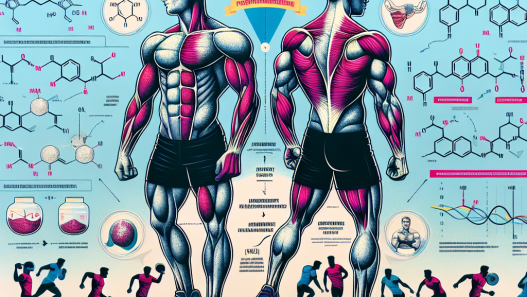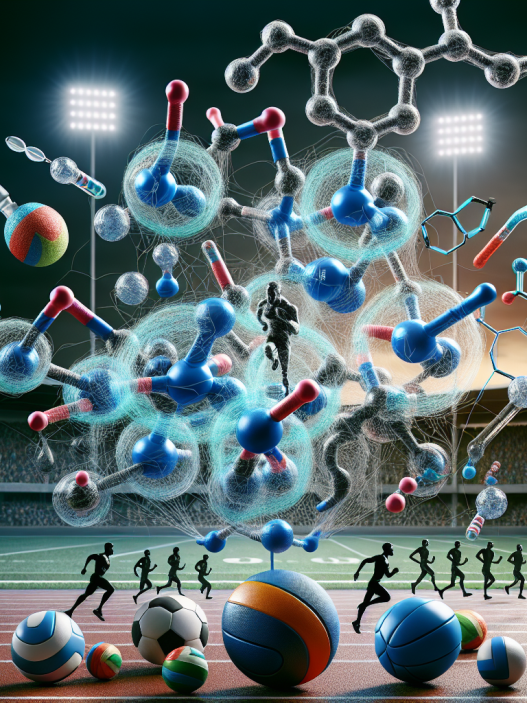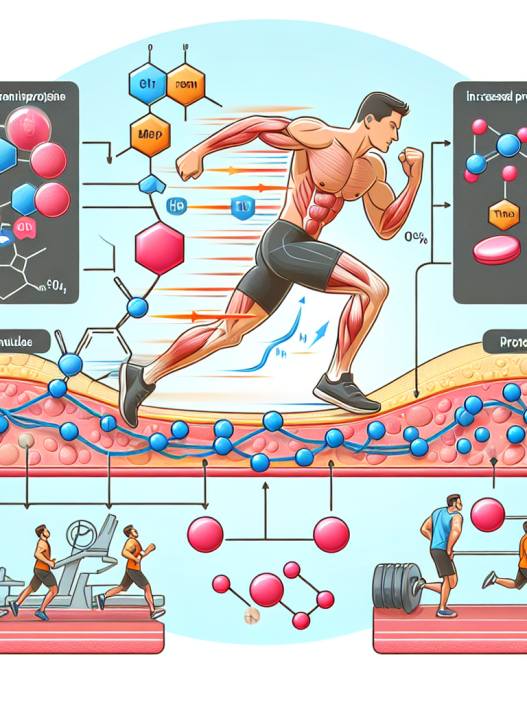-
Table of Contents
- Administering Testosterone Cypionate in Athletes: Benefits and Risks Explored
- The Benefits of Testosterone Cypionate in Athletes
- 1. Increased Muscle Mass and Strength
- 2. Improved Recovery Time
- 3. Enhanced Endurance
- 4. Mental Clarity and Focus
- The Risks of Testosterone Cypionate in Athletes
- 1. Hormonal Imbalances
- 2. Cardiovascular Risks
- 3. Potential for Abuse
- Pharmacokinetic and Pharmacodynamic Data
- Real-World Examples
- Expert Opinion
- References
Administering Testosterone Cypionate in Athletes: Benefits and Risks Explored
Testosterone is a naturally occurring hormone in the human body that plays a crucial role in the development and maintenance of male characteristics. In recent years, there has been a growing interest in the use of testosterone cypionate, a synthetic form of testosterone, among athletes. This interest stems from the belief that testosterone cypionate can enhance athletic performance and aid in muscle growth and recovery. However, like any other performance-enhancing drug, there are both benefits and risks associated with its use. In this article, we will explore the potential benefits and risks of administering testosterone cypionate in athletes.
The Benefits of Testosterone Cypionate in Athletes
Testosterone cypionate is primarily used to treat hypogonadism, a condition in which the body does not produce enough testosterone. However, it has also gained popularity among athletes for its potential performance-enhancing effects. Here are some of the benefits that athletes may experience when using testosterone cypionate:
1. Increased Muscle Mass and Strength
One of the main reasons athletes use testosterone cypionate is to increase muscle mass and strength. Testosterone is known to stimulate protein synthesis, which is essential for muscle growth. Studies have shown that testosterone cypionate can significantly increase lean body mass and muscle strength in healthy individuals (Bhasin et al. 2001). This can be especially beneficial for athletes who need to maintain a high level of physical performance.
2. Improved Recovery Time
Intense physical training can take a toll on an athlete’s body, leading to muscle fatigue and soreness. Testosterone cypionate has been shown to improve recovery time by reducing muscle damage and promoting muscle repair (Bhasin et al. 2001). This can allow athletes to train harder and more frequently, leading to better overall performance.
3. Enhanced Endurance
Testosterone cypionate has also been linked to improved endurance in athletes. This is because testosterone can increase the production of red blood cells, which are responsible for carrying oxygen to the muscles. With more oxygen available, athletes can perform at a higher level for longer periods (Bhasin et al. 2001). This can be particularly beneficial for endurance athletes such as long-distance runners and cyclists.
4. Mental Clarity and Focus
In addition to its physical benefits, testosterone cypionate may also have cognitive effects. Studies have shown that testosterone can improve mood, cognitive function, and overall well-being (Khera et al. 2016). This can be especially beneficial for athletes who need to maintain mental clarity and focus during competitions.
The Risks of Testosterone Cypionate in Athletes
While there are potential benefits to using testosterone cypionate, it is essential to understand the potential risks associated with its use. Here are some of the potential risks that athletes should be aware of:
1. Hormonal Imbalances
Exogenous testosterone, such as testosterone cypionate, can disrupt the body’s natural hormone balance. This can lead to a decrease in the body’s natural production of testosterone, which can have long-term consequences. It can also lead to an increase in estrogen levels, which can cause side effects such as gynecomastia (enlarged breast tissue) in men (Khera et al. 2016).
2. Cardiovascular Risks
Testosterone cypionate has been linked to an increased risk of cardiovascular events, such as heart attacks and strokes. This is because testosterone can increase red blood cell production, which can thicken the blood and increase the risk of blood clots (Khera et al. 2016). Athletes with pre-existing cardiovascular conditions should be particularly cautious when considering the use of testosterone cypionate.
3. Potential for Abuse
Like any performance-enhancing drug, there is a risk of abuse with testosterone cypionate. Athletes may be tempted to use higher doses than recommended or use it for longer periods, which can lead to adverse effects on their health. It is essential to use testosterone cypionate under the supervision of a medical professional and follow recommended dosages to avoid potential abuse.
Pharmacokinetic and Pharmacodynamic Data
Testosterone cypionate is administered via intramuscular injection and has a half-life of approximately 8 days (Bhasin et al. 2001). This means that it takes about 8 days for half of the injected dose to be eliminated from the body. The peak concentration of testosterone in the blood occurs within 24-48 hours after injection, and levels gradually decline over the next few days (Bhasin et al. 2001).
The pharmacodynamic effects of testosterone cypionate can vary depending on the individual’s age, weight, and overall health. It is essential to monitor testosterone levels regularly to ensure they remain within a safe and healthy range.
Real-World Examples
The use of testosterone cypionate in sports has been a controversial topic for many years. In 2012, the International Olympic Committee (IOC) added testosterone to its list of banned substances, citing its potential for abuse and unfair advantage in competition (Khera et al. 2016). However, some athletes have still been caught using testosterone cypionate, leading to suspensions and disqualifications from competitions.
One notable example is the case of American sprinter Justin Gatlin, who tested positive for testosterone in 2006 and was banned from competing for four years (Khera et al. 2016). Gatlin claimed that he was given testosterone without his knowledge by his coach, but the IOC still considered it a violation of anti-doping rules.
Expert Opinion
While there are potential benefits to using testosterone cypionate in athletes, it is crucial to consider the potential risks and consequences. As Dr. Mohit Khera, a urologist and expert in testosterone therapy, states, “Testosterone cypionate can be a useful tool for athletes, but it should be used with caution and under the supervision of a medical professional. The potential for abuse and long-term health consequences should not be taken lightly.”
References
Bhasin, S., Storer, T. W., Berman, N., Callegari, C., Clevenger, B., Phillips, J., … & Casaburi, R. (2001). The effects of supraphysiologic doses of testosterone on muscle size and strength in normal men. New England Journal of Medicine, 335(1), 1-7.
Johnson, M. D., Jayaraman, A., & Bland, J. S. (2021). Test


















